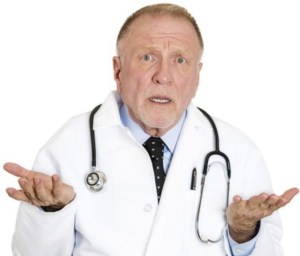 By Erik Dolson
By Erik Dolson
The coronavirus is a once-in-a-generation event. As it has ended many lives, going forward it will define many others. It will perhaps define our country, what we have become and who we will be.
The virus is an insidious enemy, spreading among people who do not appear to be sick. It can attack in terrifying ways, causing blood clots and strokes in young and seemingly healthy people, invading the lungs in a way that does not cause shortness of breath until there is too little oxygen for life.
But the damage is not suffered just by individuals with the virus, and their families. Our economy teeters on the edge as we try to limit a death toll that reached 50,000 in this country alone in about one month. We have had to change how we live. The coronavirus and its aftermath are threats to the whole country, a threat to the whole world.
One argument against the U.S. going to war against the Nazis was they were “over there,” on the other side of a great moat that separated America from Europe. That was a false argument then, too, but there are no moats any more, if there ever were, against disease.
Diseases like this are wars between species, and ours is under threat. It’ s the type of threat that requires us to come together as a people, as humanity. It is a threat that should unite us in a battle where our collective will can overcome an alien species that takes individual lives and may destroy whole nations.
Others here know history far better than I, but phrases from past crises come to mind. “A house divided against itself cannot stand,” “United we stand, divided we fall.”
America has excelled when faced with this type of challenge. Acknowledging Winston Churchill’s back handed compliment, “You can always count on Americans to do the right thing — after they’ve tried everything else,” we have done the right thing, and we prevailed. We saved countless lives, we saved nations, we saved democracy, we saved freedom.
But we did it together.
Trump’s strategy of spreading fear and loathing, divide and conquer, winning is all that matters, has been shockingly successful in this Age of Facebook where ideologies are reenforced and common interests buried. The strategy helped Trump take over the Republican party and helped Republicans capture the debate of what it means to be an American.
But over the last several weeks, it’s been obvious that strategy is the wrong way to fight the coronavirus. The virus is not contained in New York. The Midwest is not a separate world. Louisiana is not south of the border. We can’t shrug and let each state take care of their own. We are in this together.
We can’t let urban states go bankrupt, as if they didn’t support rural states with money and expertise as they do. We can’t let rural states suffer as if their culture wasn’t a crucial strength of America, as we have in the past. We can’t turn our backs on anyone. If the virus hides out in a pocket in Kentucky, or in Africa, it WILL escape and come for the rest of us.
I am not advocating action as a liberal. There are many liberal agendas I do not support, and there are left wing interests I feel are destructive. But now is not the time to take sides. Despite two generations of depletion by liberals and deconstruction by conservatives, America united still has the ability to lead the world in this fight against an enemy that could kill any of us, and destroy all of us.
But only if we stand shoulder to shoulder.
If we can own our individual responsibility to America, and to humanity, we will defeat the coronavirus and future generations will look upon America with appreciation, and perhaps incorporate the principles on which she was built of value to each of us.
If our efforts are driven by selfishness, pettiness, and discord, if divided we will fail. The great American experiment will have been nothing more than a great American Dream unfulfilled, American exceptionalism will have been an exception we never meant it to be.
(Virus photo DAVID MARCHAL/SCIENCE SOURCE)




 By Erik Dolson
By Erik Dolson By Erik Dolson
By Erik Dolson

 I lay one shop towel on the counter and put another one on top of it at right angles, so the perforations that allow us to easily tear the towels apart are not lined up on the two sheets. Then I folded in the pleats. For me, it was easiest to flop the towels over for each pleat, which are about one ince wide.
I lay one shop towel on the counter and put another one on top of it at right angles, so the perforations that allow us to easily tear the towels apart are not lined up on the two sheets. Then I folded in the pleats. For me, it was easiest to flop the towels over for each pleat, which are about one ince wide.




